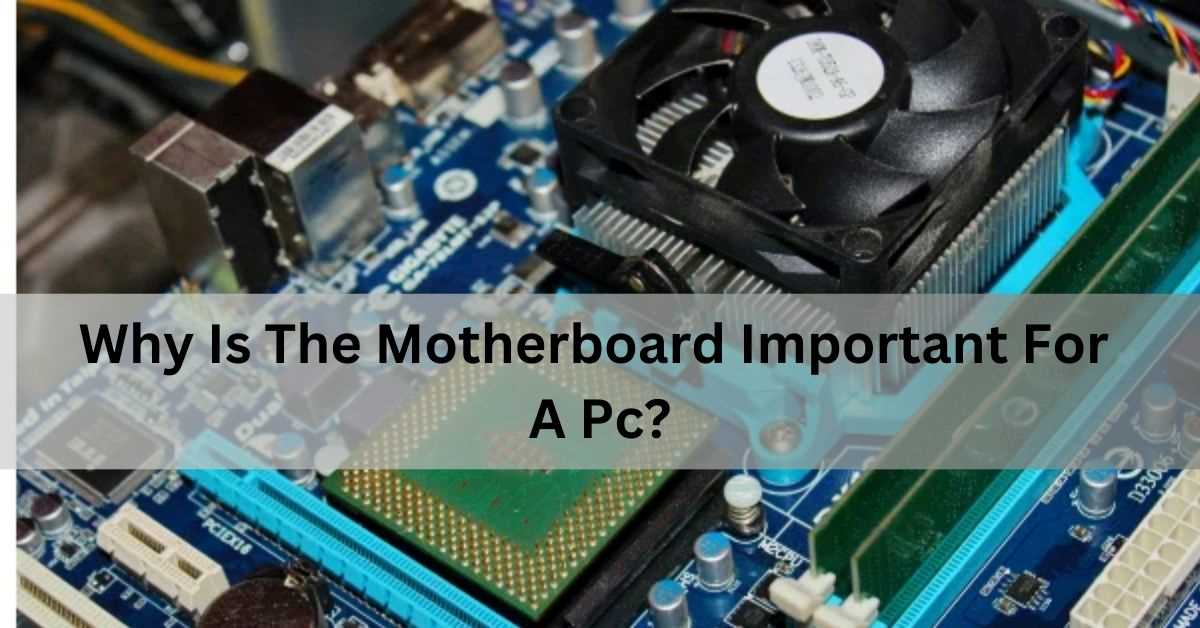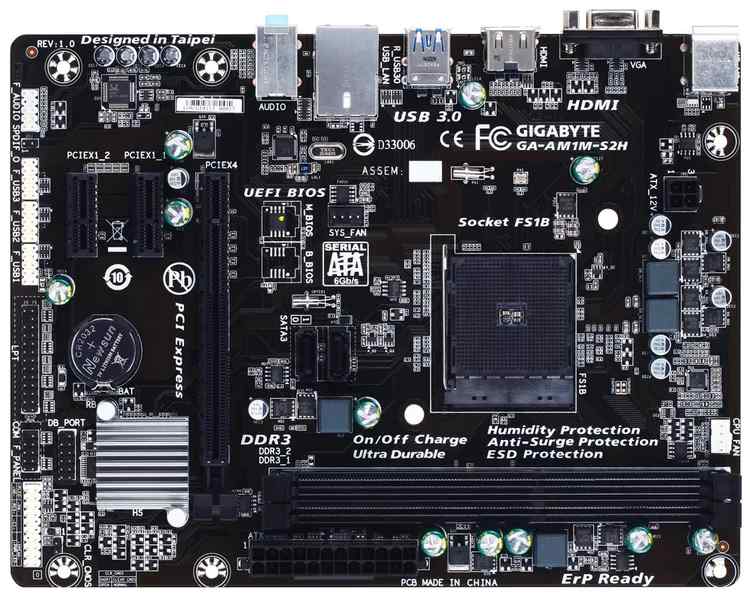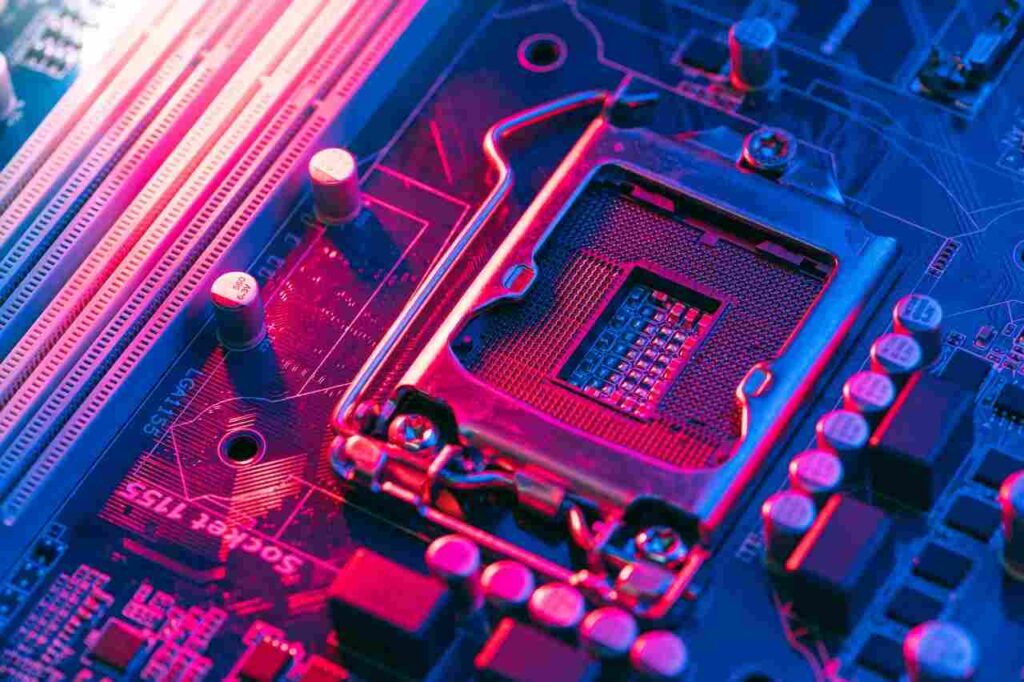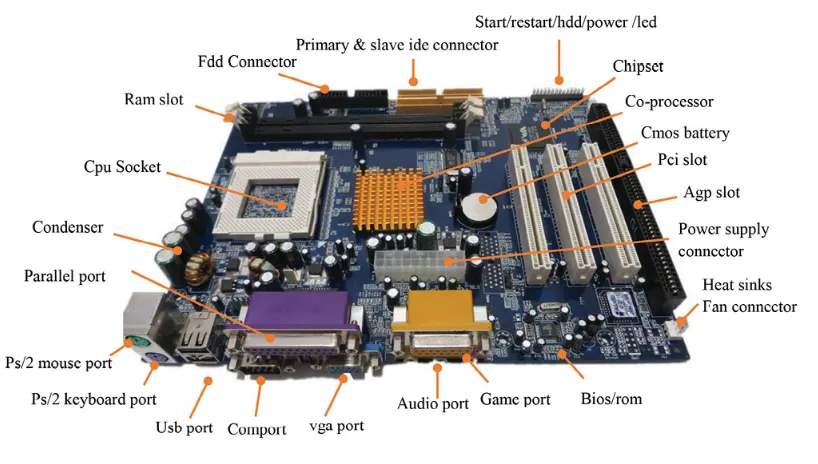
The motherboard is useful because it connects all computer parts together, gives them power, and helps them talk to each other. It’s like a main road that lets you add new parts and improve your computer. A good motherboard makes your computer work properly and run smoothly.
Why is the motherboard useful? I know that switching to a better motherboard for my gaming PC had an important effect. It was an attractive wonderful investment because it increased the security, performance, and options for future upgrades of my computer.
Let’s explore why the motherboard is important. It connects key parts like the CPU and RAM, ensuring your computer runs smoothly. Understanding its role helps optimize performance and plan for upgrades.
What Does A Motherboard Do In A Computer?
The motherboard functions as the main circuit board in a computer system, connecting and combining all of the parts that are important. It serves as a focal point for communication between the expansion cards, storage units, RAM, CPU, and GPU.
Important parts of the motherboard are also located there, including the chipset, which controls data flow between different parts of the system, and the BIOS/UEFI firmware, which sets up hardware and controls startup configurations.
Why Is The Motherboard Important For A Pc?
Because it controls the design and functionality of the system the motherboard is important for the performance and operation of a PC. Based on memory slots and socket types, it determines connectivity between CPUs and RAM components. The chipset on the motherboard plays an important role for maximizing power and data transfer rates.

In order to upgrade hardware components like graphics cards and storage drives and add accessories, it also has slot extensions and connectors. A carefully selected motherboard guarantees capacity, stability, and dependability, enabling customers to gradually improve and personalize their PC’s performance.
How Does The Motherboard Help Parts Like The Cpu And Ram Talk To Each Other?
Communication Facilitation:
The motherboard connects the CPU, RAM, and other parts of the computer using pathways like buses and ports. It ensures everything works together smoothly.
CPU and RAM Communication:
The CPU talks to the RAM through a controller on the motherboard. This controller manages how data moves between them, keeping things running fast and efficient.
Peripheral Device Communication:
High speed pathways like PCIe let the CPU talk to devices like graphics cards and storage drives. This ensures fast and reliable data transfer, making sure everything works well together.
BIOS/UEFI Firmware:
The motherboard’s BIOS/UEFI firmware starts the computer and sets up how it works. It checks all the parts to make sure they’re working right, ensuring the computer runs smoothly.
Physical Sockets and Slots:
The motherboard has slots for things like RAM and cards, providing secure connections. This keeps data flowing smoothly between parts, which is important for good performance.
Enhancing System Responsiveness:
By managing data well and making sure parts work together smoothly, the motherboard makes the computer quick and good at handling many tasks at once. This makes it useful for lots of different things you might use your computer for.
Why Should You Pick A Motherboard That Matches Your Cpu And Ram?
A computer that runs smoothly depends on the motherboard that is selected. It need to have a socket that exactly fits your CPU. For each CPU to function properly, the motherboard must have an identified chipset that supports memory and allows for overclocking.

Along with integration, your RAM must match the type (DDR4 or DDR5), speed, and capacity of the motherboard’s sockets. If these components aren’t compatible, your computer may malfunction or possibly experience harm. Selecting a motherboard that is compatible with your CPU and RAM enables reliable and effective operation of all of your components.
How Does The Motherboard Manage Electricity For Other Parts?
Power Regulation and Distribution:
The motherboard controls and distributes electrical power from the PSU (Power Supply Unit) to all connected parts through power connectors and voltage regulators. This ensures each part gets the right amount of power to work correctly.
Voltage Management:
The motherboard makes sure each part gets the right voltage, preventing issues like overheating, power surges, and hardware failures. This helps protect the components and keep them working well.
Advanced Power Management Technologies:
Modern motherboards use advanced power management technologies like PWM (Pulse Width Modulation) controllers and VRMs (Voltage Regulator Modules). These technologies help save energy and reduce heat. PWM controllers control the power supply, and VRMs manage the voltage needed by the CPU and other important parts.
AC to DC Conversion:
The PSU provides AC (Alternating Current) power, but most computer parts need DC (Direct Current) power. The motherboard’s components convert AC power into DC power, making it suitable for the computer parts.
Ensuring Stable and Reliable Operation:
The motherboard keeps the computer running smoothly and reliably, whether it is performing simple tasks or running demanding applications. It manages power distribution and voltage levels to ensure consistent performance, preventing crashes and ensuring smooth operation even under heavy use.
How Does A Good Motherboard Make Your Computer Faster?
A good motherboard speeds up your computer by enabling advanced capabilities that improve data processing and response times. It speeds up overall performance by utilizing interfaces like USB 3.2/4.0 and PCIe Gen 4.0/5.0, which enable quicker data transfers.

Additionally, it supports higher RAM and faster memory speeds, which facilitates quicker data access and perfect processing on your computer. You may overclock CPUs and RAM to obtain higher performance for gaming, content creation, or professional work thanks to its advanced BIOS/UEFI settings.
Why Should Gamers Care About A Motherboard’s Features?
Gamers benefit from high-performance motherboards with gaming-specific features like multiple PCIe slots for multiple GPUs and support for high-speed DDR4 RAM. Advanced cooling systems keep temperatures low during intense gaming.
Built-in Ethernet and Wi-Fi with gaming prioritization optimize network performance. BIOS/UEFI firmware provides overclocking tools for maximizing hardware performance. Overall, gaming motherboards enhance gaming experiences with reliable performance and customizable settings.
What Should You Consider When Upgrading Your Motherboard For Future Tech?
When upgrading your motherboard to stay ahead, think about these tips:
Future Compatibility:
Make sure it supports upcoming CPU and RAM technologies, like new socket types and DDR5 memory for faster performance.
Fast Data Transfer:
Look for PCIe Gen 4.0/5.0 support for quicker data transfers and NVMe SSD compatibility to boost storage speed.
Connectivity Options:
Choose a chipset with enough expansion slots and modern ports like USB-C and Thunderbolt for connecting new devices.
Upgradable BIOS/UEFI:
Ensure the BIOS/UEFI firmware can be updated easily and supports future hardware upgrades without issues.
Quality and Durability:
Consider the build quality, durability of components, and features like advanced VRM designs and thermal management for reliable and long-lasting performance.
Why Is It Important To Understand A Motherboard’s Layout When Building A Pc?
Understanding how the motherboard is set up is crucial for building a PC smoothly. It helps you know where to place things like the CPU, RAM, graphics cards, and storage drives. This setup ensures good airflow inside your computer case, keeping everything cool and working well.

Neatly organizing cables and placing components correctly reduces problems and makes it easier to fix things later. Plus, knowing the motherboard layout makes adjusting settings in your computer’s setup menu straightforward, ensuring your PC runs smoothly and reliably.
How Does A Motherboard’s Design Affect Its Durability And Ability To Handle Upgrades?
A motherboard’s design affects how long it lasts and how well it handles upgrades. Quality ones use durable parts like solid capacitors and MOSFETs, along with good PCB materials. Efficient VRM designs with heatsinks keep everything cool and stable, ensuring your components last.
A well-planned PCB layout reduces signal problems and boosts data speeds for technologies like PCIe Gen 4.0/5.0 and DDR5 RAM. Compatibility with new CPU sockets and memory standards means you can upgrade your PC easily without needing a new motherboard.
FAQ’s
Why is the motherboard useful for gaming?
The motherboard is crucial for gaming because it supports high-speed components like multiple GPUs and fast RAM, which ensure games run smoothly and without lag.
Why is the motherboard useful on Reddit?
Reddit is invaluable for motherboard enthusiasts as it allows users to share advice, troubleshoot issues, and stay updated on the latest developments in motherboard technology.
What is a motherboard?
The motherboard is like the main hub of a computer where all important parts like the CPU, RAM, and storage devices are connected and work together to make the computer function. It’s essential for everything in the computer to communicate and operate smoothly.
Is the motherboard important for gaming?
Definitely. It’s a important component that directly impacts how smoothly your computer runs games, influencing speed, compatibility, and overall performance.
What are the functions of a motherboard?
It connects and manages all parts, controls power, starts the computer, and allows for adding more parts.
What does a motherboard do for gaming?
It makes games run faster with its fast connections, supports powerful graphics, and improves overall gaming performance.
Conclusion:
In summary, the motherboard is very important and helpful. It makes computers work well, connects all parts, and helps you do things. Without it, your computer won’t work, so it’s crucial for everything to function properly.
